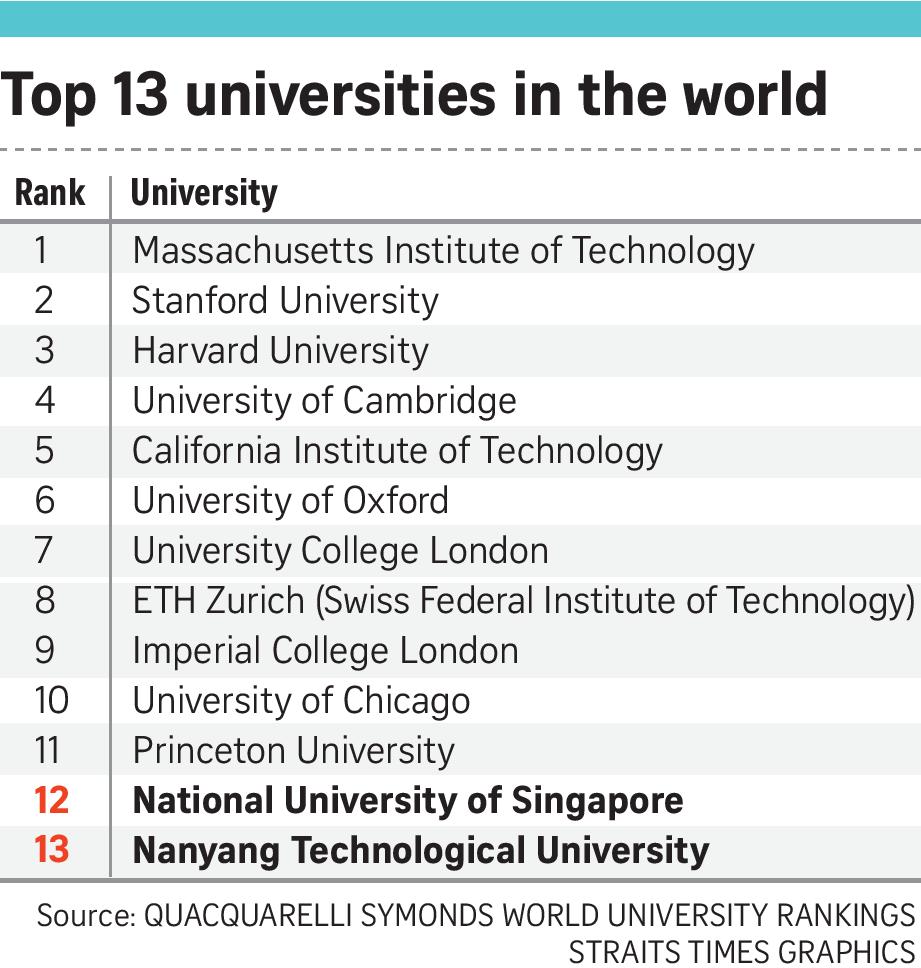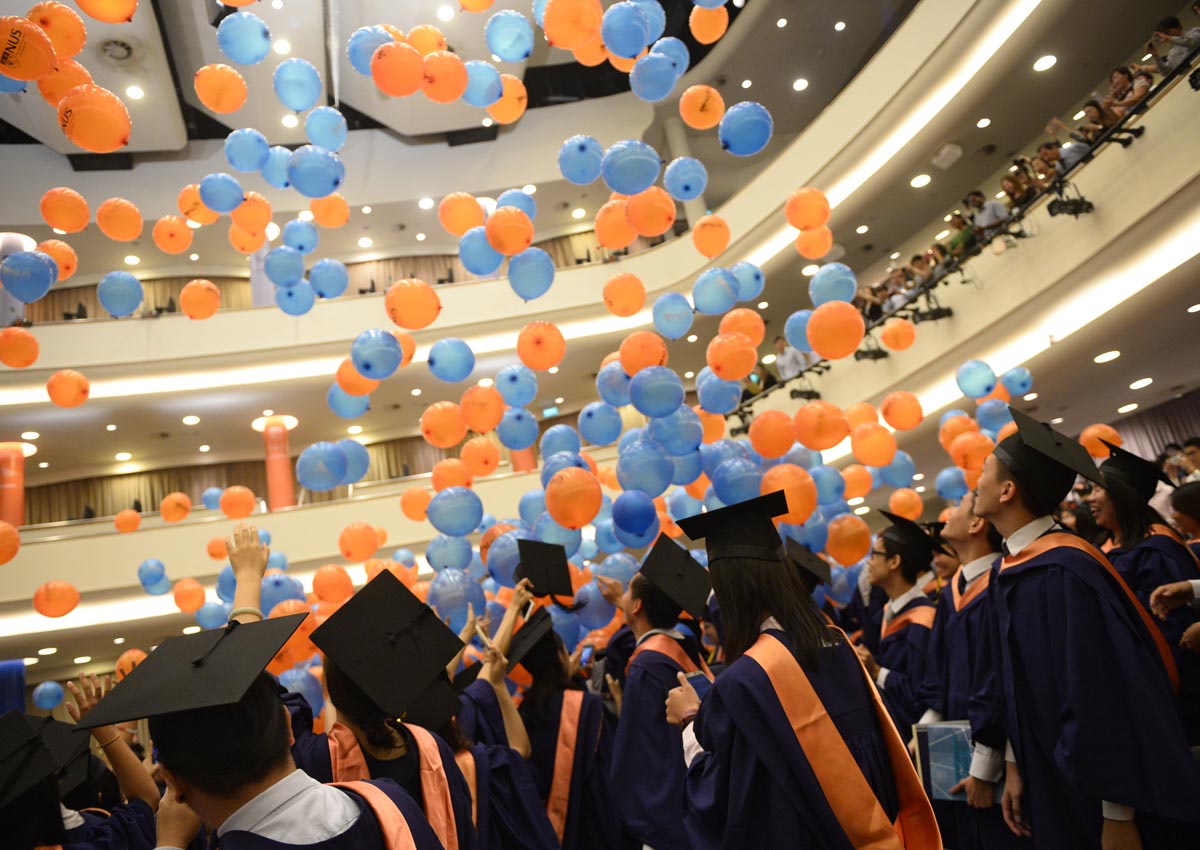Two Singapore universities have kept their top 20 positions in the latest World University Rankings, making the Republic the only Asian nation represented among the best of the world’s top universities for the second year in a row.
The National University of Singapore (NUS) and Nanyang Technological University (NTU) kept their 12th and 13th positions respectively in this year’s Quacquarelli Symonds (QS) World University Rankings.
The two universities had shot up in the rankings last year, partly due to a change in how research citation was evaluated, with NUS moving up from 22nd to 12th place and NTU moving up from 39th to 13th.
Singapore Management University made its debut in the rankings this year in the 431-440 band. It scored most highly for its international faculty ratio.
London-based education consultancy QS said NTU stood out in research, ranking 64th in the world for citations per faculty while NUS was placed 9th and 11th globally, for employer and academic reputation respectively, having received perfect scores in both metrics.
“In featuring two universities in the global top 20, Singapore remains the only Asian nation to place among the very highest echelons of the QS World University Rankings,” said the consultancy.
The third best-ranked Asian university was China’s Tsinghua University, which rose one place to 24th this year.
QS head of research Ben Sowter said: “Singapore’s continued strong performance stems from excellence across our spectrum of measures. In most aspects, there are institutions elsewhere that can lay claim to a more spectacular indicator performance but very few that can compete across the board.”
NUS president Tan Chorh Chuan said the university has continued to focus on preparing future-ready graduates who can thrive and contribute in a much more volatile environment.
“We are happy that these efforts have been recognised by our ranking among the world’s top universities, and Asia’s best,” Professor Tan said.
NTU president Bertil Anderson said: “Last year, we surprised ourselves a little when we jumped 26 places to the 13th position. But we have been working very hard in the last few years for this ‘surprise’. This year, we are happy that this high standing has been reaffirmed by QS.”
Professor Anderson added: “Of course, now that we are competing in the global top tier, the competition is much more intense, compared to the type of quantum leaps that we have been making since 2011.”
The QS rankings use six indicators – academic reputation, employer reputation, faculty student ratio, citations per faculty, international students and international faculty.
Mr Sowter said the rankings “imply” that investments in higher education affect rankings.
“Institutions in countries that provide high levels of targeted funding, whether from endowments or from the public purse, are rising.
“On the other hand, Western European nations making or proposing cuts to public research spending are losing ground to their US and Asian counterparts.”
For example, Britain’s Cambridge University lost its third placing this year. This means American institutions hold all top three places for the first time since the ranking started in 2004.
The Massachusetts Institute of Technology topped the list for the fifth consecutive year. Stanford was second and Harvard third.


This article was first published on September 6, 2016.
Get a copy of The Straits Times or go to straitstimes.com for more stories.






